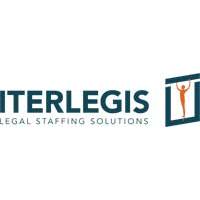
Iberia Teams 2017
| Repsol






Repsol
| Repsol
| Repsol
Repsol have been evolving as a global company for over 90 years, now operating in around 40 countries with more than 25,000 employees. Repsol’s steady internationalisation took place in mid-1990,...
| Repsol
Describing themselves as ‘business orientated lawyers’ who consistently add value to business operations, the Repsol legal team acts as a central part of the energy giant’s operations, aiming to be...
| Repsol
Continuing to impress following its previous recognition, the in-house legal team at Repsol is a leading example of best practice in Colombia’s legal in-house market, and a stand-out team within...
One of the major global players in the energy sector, Repsol boasts over $44bn in sales as of May 2016. Its legal team occupies a senior position within the company, with general counsel and secretary to the board of directors Luis Suárez de Lezo Mantilla acting as part of the decision-making apparatus at the top of the company. The legal team at Repsol is experienced in supporting deals relating to the exploration, extraction and distribution of hydrocarbon products, with some recent projects providing examples of this. Firstly, in March 2017, Repsol announced an agreement to buy 60% of concession contracts for hydrocarbon explorations in Ioannina and Aetoloakarnania in Greece from Energean Oil & Gas, after a public tender. Also, it entered into an agreement with Amazon which will allow mutual customers to pick up packages from Repsol’s extensive network of filling stations. This novel example of utilising an already established retail network is just one instance of the legal team supporting an initiative that allows the company to provide a more attractive service to consumers with little attached risk. Paula Carvalho, head legal manager for Portugal, is in charge of the five-strong Portuguese legal team which she informs us has not changed in terms of numbers or the identity of individuals for a number of years, highlighting great stability within the team. Carvalho also elaborates on how the team’s role has changed over the years: ‘traditionally the legal team gave support to the businesses upon request of the latter, mainly regarding preventive commercial advice, contract drafting, and daily counselling. Due to many legislative changes we were confronted with the need to focus in anticipating the legislative production our legal team has been able to accommodate its traditional practice with a more proactive approach and thus have been able to anticipate solutions to potential problems that could arise from the new legal framework and respective regulations, which means working with the businesses from the very beginning of every project’. Carvalho is proud of the team’s response to a changing regulatory landscape, pointing out in particular their 2015 response to ‘the revision of the Oil Sector legal framework (amendment of Decree-Law 31/2006) a process in which legal took a leading and crucial role’, especially when this ‘was complemented with regulations enacted to develop the legal principles contained in the amended version of DL 31/2006’. This forced the team to ‘confront the need to focus in anticipating the production of new legislation’, and take a proactive approach to securing the company’s strategy.